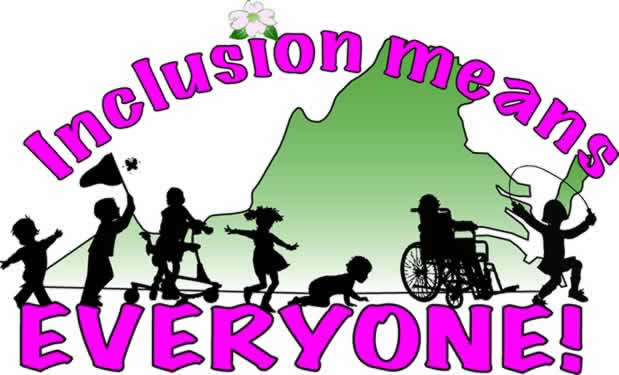Videos
Brandon's Story, A Mother's Voice (YouTube, video)
Meet Brandon’s mother as she talks about the importance and impact of early intervention on her son’s life. You’ll also hear from Brandon, who is a teenager and talented musician.
Child Model with Down Syndrome Inspires Thousands (external website)
MSNBC
This story and video clip describe the experience of a 6-year old boy who has modeled for Target and Nordstrom. As the story goes, “Ryan Langston has everything a casting director would want in a child model: charisma, a hip haircut and a knockout smile. This 6-year-old also has Down syndrome -- and it is that fact that has daytime talk shows, international newspapers and news networks all wanting to tell Ryan's story.”
Early Childhood in Giles County Public Schools (YouTube)
Virginia Department of Education
This video highlights an inclusive early childhood special education program in Giles County, VA. Team members, such as teachers, a coach, an administrator, speech-language pathologist, and a parent discuss the characteristics and successes of the program.
Early Childhood Inclusion in Augusta County (YouTube)
Virginia Department of Education
This video features a fully inclusive preschool program in the Augusta County school system in Virginia. The requirements and importance of inclusion in early childhood programs are also discussed.
Foundations of Inclusion Birth to Five (YouTube)
CONNECT Modules
This video provides an overview of inclusion legal and policy foundations and inclusion research, as well as a definition, the desired results and defining features of inclusion in early childhood.
Inclusion in Action: Patty's Play Group (YouTube)
Alexandria, VA This video features an inclusive play group in Northern VA that is designed so that toddlers with and without disabilities and their families have fun together.
Thanks!
Inclusion Means Everyone! (YouTube)
This 3 min video describes inclusion as a basic human right. Speakers focus on the importance of all children, from infancy on through adulthood, being fully included in all aspects of family and community life. This video was developed by VA's Integrated Training Collaborative at the Partnership for People with Disabilities at VCU as a project of the VA SpecialQuest Birth-5 Project.
Inclusion: What It Takes to Educate ALL Children Together – Early Childhood Inclusion in Augusta County (YouTube)
VA Department of Education
This video highlights an early childhood special education program in Augusta County, VA that is fully inclusive of children with and without disabilities. Teachers and administrators discuss the characteristics necessary to make it work, such as attitude, leadership, and teamwork.
Inclusion Song - Content Teaching Academy (YouTube)
Early childhood special education teachers who attended the 2012 Content Teaching Academy at James Madison University sing a song about including all children in their classrooms.
Under The Sea (YouTube)
Haley Elementary School
This video of an upper elementary school play includes children of all abilities.
Patrick Henry Hughes (YouTube)
This story spotlights the inspirational life of Patrick Henry Hughes and his extraordinary musical talent. With the assistance of his father, Patrick attends university classes and plays trumpet in the marching band. Patrick was born with visual and motor differences and amazing musical abilities.
Team Lydia Rose: Supporting Inclusion Every Day In Every Way (Vimeo)
Larry Edelman, Desired Results Access Project
This video illustrates how inclusive practices should begin as early possible. The video
has important messages for families who are, or will be, receiving early intervention services, for current and future early intervention practitioners, and for early childhood educators.
Tim Harris Serves Up Food…and Hugs! (external website)
This brief article describes a young man, Tim Harris, who owns a popular restaurant and the high quality customer service he provides. Tim is 26 years old and has Down syndrome.
Why Inclusion Video Series
STEMIE Innovation for Inclusion in Early Education
This 3-part video series provides information about and illustrates high quality inclusion in early education settings. Click the links below for each video:
 their full potential. The defining features of inclusion that can be used to identify high quality early childhood programs and services are access, participation, and supports."
their full potential. The defining features of inclusion that can be used to identify high quality early childhood programs and services are access, participation, and supports."




